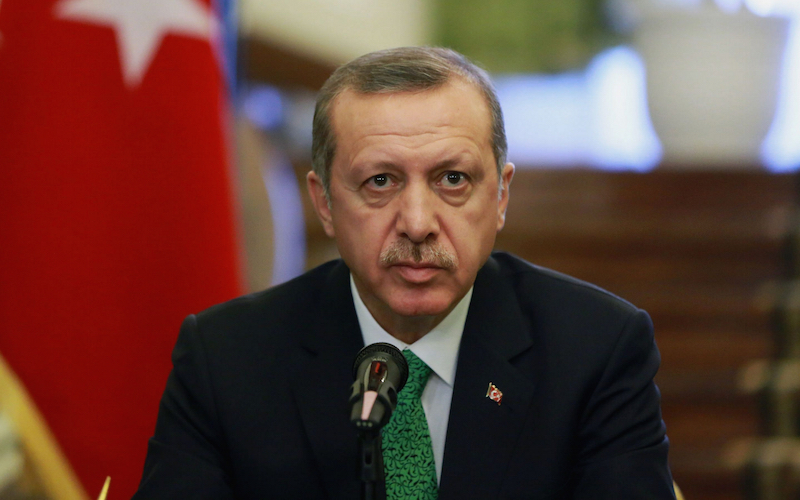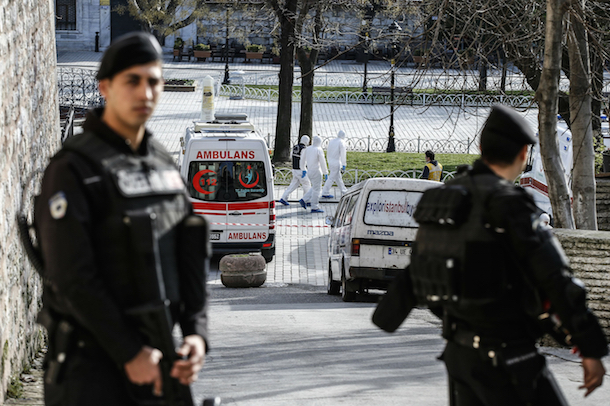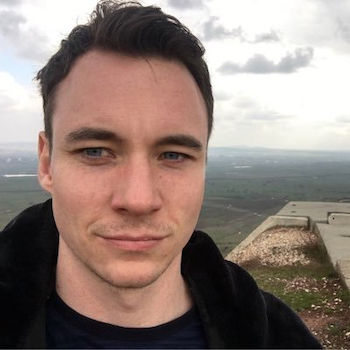
Political Manipulation of Turkey’s Domestic Security Exposes Vulnerability
A suicide bombing on 12th January 2016 targeted and killed 10 German tourists in the heart of Istanbul’s historic Sultanahmet district. The bomber has been identified as a Saudi Arabian national who entered Turkey from Syria as a migrant. In assessing the reality of security risks in Turkey, it is important to realize that, as much as Ankara has positioned itself as an opponent to the caliphate in Raqqa, there are deep flaws and divisions within the Turkish security apparatus. Such gaps in capacity are the result of a politically motivated campaign of legal manipulation from President Erdoğan and his network of allies across Turkish elites.
The domestic security environment of Turkey visibly deteriorated over the course of 2015; the renewed conflict with the Kurdish Workers Party (PKK) has paralyzed the southeast of the region and resulted in over 2,000 deaths. More troubling perhaps, at least for the majority of Turkish civilians, has been the insidious spread of terror attacks into urban areas. The dominant security trend over the past year has been a concerted challenge to the security apparatus’ monopoly on violence. Suicide bombings by affiliates of the Islamic State in Suruç and Ankara killed 134 people in July and October and injured dozens more.
There was speculation at the time of the attacks that Turkish authorities, under orders from President Recep Tayyip Erdoğan, had cultivated an environment of domestic instability to profit from public desire for security. Erdoğan’s Justice and Development Party (AKP) had lost its parliamentary majority in June 2015 and the President clearly intended to show the public that it had made a mistake before the 1st November re-election.
Unquestionably, particularly since securing a majority in November, Ankara has taken a harsher stance against the potential terror threat from the Islamic State; December saw multiple arrests of individuals and terror cells operating throughout the country.
These efforts may be too little, and too late to prevent repeated low-intensity terror attacks in 2016. The terror networks of the Islamic State are simply exploiting the weaknesses that have been metastasized throughout the Turkish security state.
In order to appreciate the gaps in Turkey’s domestic security capacity it is necessary to unravel Erdoğan’s understanding of prescient internal threats.
On 17th December 2013, an unprecedented investigation into a corruption network around Erdoğan was made public. Since then, the President has mobilized all the resources – formal and informal – at his disposal to undermine the criminal justice system of Turkey. Erdoğan blamed the investigation on his erstwhile ally, the US-based Muslim preacher Fethullah Gülen, and his alleged network of devoted followers both in Turkey and overseas. On the aftermath of the Istanbul suicide bombing, Erdoğan was preoccupied with a call to arms for Turkish diplomats to lobby foreign governments to permit a takeover of Gülen private schools. Former CIA director Porter Goss has been hired to lobby the US Congress.
The two men had formed an alliance of convenience during the early years of the AKP’s administration to subvert the dominance of the military over Turkish politics. Gülen adherents are active throughout the civil service, particularly the judiciary and law enforcement – a legacy of the movement’s financial and social investment in academies – and it was these arms of the state that were used to curtail the military in a series of high profile and largely fabricated trials.
The two charismatic leaders eventually came to represent a direct challenge to the other, culminating in the 2013 investigation. Erdoğan has waged a propaganda war on the movement since then in an attempt to purge its influence from his state-building project. The President has coined the term ‘parallel state’ to describe the alleged hidden layers of Gülen influence within the state bureaucracy.
Conversely, since assuming office as President in August 2014, it has been Erdoğan who has most assiduously constructed an informal structure of shadow governance. He has increased the scope of Presidential oversight to include parallel bodies to monitor domestic security, foreign affairs, and defense. After the AKP’s success in the November 2015 parliamentary elections, Erdoğan ensured that his loyal adherents attained key cabinet decision-making positions. Subsequent purges have had a direct impact on domestic security, albeit with the intention of securing his ambitions of a de facto executive presidency.
As the perpetrators of the Istanbul bombing definitively appear to be affiliates of the Islamic State and already flagged by Turkish intelligence, questions will inevitably follow over the miscommunication that failed to prevent their access to terror networks. However, the incident is in no way isolated.
Implications
Turkey’s intelligence and law enforcement capacity has been gutted by President Erdoğan’s manipulation of state structures since 2013.
In the immediate fallout from the December 2013 investigation perhaps as many 20,000 police officers were transferred or reassigned at the express order of the President. Well over 1 billion Turkish Lira has been spent on this, and it has left the state’s ability to collect, collate, and analyze intelligence severely under-resourced. The most vituperative targeting was directed at departments investigating organised crime, smuggling and (significantly) counter terrorism.
These police units may have represented the most immediate threat to Erdoğan’s crony network of businessmen and regional ambitions, but exiling them to tasks such as traffic control was a fundamental strategic error. A controversial security bill passed in March 2015 included an article stipulating that investigators from the National Police Department or the Interior Ministry cannot be sued for incriminating police officers in corruption investigations. In April 2015, the High Assessment Board of the National Police Department retired 1,150 first-degree police chiefs, with at least another 3,000 of varying ranks removed in the following weeks.

The net effect of these punitive reforms has undermined the effectiveness of domestic security forces within Turkey. Erdoğan has capitalized on the dynamics of the crime-terror nexus on this to promote the idea that a weakened security environment is perfect justification for the continued political stability that only the AKP) can provide.
The conflict with the PKK has largely been confined to the southeast, albeit with great cost of life and destruction. This ‘hard’ conflict is the responsibility of the military and Turkish paramilitary forces; it is in the more opaque world of transnational crime-terror that the effects of state-security manipulation are being most keenly felt. Organized crime and terror networks are breaking through the cracks in the security state.
At the close of December 2014, two prominent members of the Turkish narco-mafia were assassinated in Istanbul and Amsterdam. The investigation is on-going, but the incident was an indication that AKP claims to have ended the gang violence and organized crime of Turkish domestic politics throughout 1990’s were rudely checked. By April there were reports of Istanbul shootouts between drug cartels and Islamic State recruiters.
Appreciation of the crime-terror nexus suggests that there are almost certainly operational synergies between organized crime and Islamist terror groups in Turkey. At the very least, established trafficking routes and finance networks are presumably being utilized by both. As the state commits and squanders its personnel and capital in prosecuting hostile members of the judiciary and media outlets critical of the government, illicit networks are capitalizing on the spaces in-between.
A hostage situation in Istanbul on 31st March 2015 was the clearest indication that serious operational gaps were being cleft into domestic security and intelligence gathering. An Istanbul lawyer was taken hostage and then killed by two members of the Revolutionary People’s Liberation Party-Front (DHKP-C), a leftist terrorist group active across Turkey. Militants infiltrated the Justice Palace in central Istanbul before being killed in a botched rescue attempt. The day after the courthouse attack, the Istanbul Police Department was targeted by two further DHKP-C members. On 10th August the group carried out an ineffectual attack on the US Consulate General in Istanbul.
The former Istanbul Police Department Counterterrorism Unit Chief claims that at least 200 DHKP-C were released from prison during 2014 – his last year in office before his arrest. These are not obscure targets – these have been attacks at the institutional and diplomatic core of the Turkish Republic. Similarly, in the aftermath of the devastating Ankara suicide bombing in October, Prime Minister Ahmet Davutoğlu acknowledged that the attackers were on a government monitoring list, but had not been apprehended before their bombing.
The DKHP-C represent a fringe movement of radical agitation for the Turkish state, but the expansion and influence of the Islamic State in Turkey is far more troubling. The Turkish National Intelligence Organization (MİT), has allegedly been in contact with Islamic State operatives in Syria and Iraq for years and has effectively been Erdoğan’s private intelligence service since the organization was consolidated in 2013. The President believes the intelligence services are Turkey’s most important institution and, under the stewardship of Undersecretary Hakan Fidan, the MİT has become Erdoğan’s foreign policy unit, funded by a Presidential discretionary fund.
Erdoğan’s personal preference for entrusting key administrative positions to loyal allies is undermining the effectiveness of state institutions. At the time of the Suruç and Ankara bombings the interim Minister of Interior, Selami Altınok. Altınok, had been serving as Istanbul’s General Director of Security at the time of the DHKP-C hostage fiasco. His position was put under scrutiny after the Ankara bombing; Altınok’s name is synonymous with the corruption probe reassignments and the continued influence of President Erdoğan and domestic cabinet decision-making.
With the return of an AKP majority to parliament after elections in November, Erdoğan was in a position to reinsert his preferred allies into positions of governmental responsibility, deepening his influence over state mechanisms and assuming de facto executive authority over the cabinet. Altınok was removed as Minister of the Interior and replaced with one of the President’s most stalwart allies, Efkan Ala. Ala previously oversaw the Interior after being appointed in the wake of the 2013 corruption investigation; he was, at the time, the longest serving undersecretary to Erdoğan. His appointment on 25th December 2013 gave him oversight of Erdoğan’s retribution campaign against the Gülen movement. The inclusion of figures like Ala in the new cabinet of Prime Minister Davutoğlu is an indication that elimination of the Gülen presence, rather than the eradication of internal threat from the Islamic State, is still a priority for the administration.
Erdoğan formally entered into the US-led coalition against the Islamic State on 25th July 2015 in a formal declaration of war after the Suruç attack, but the Turkish contribution to the air campaign has been lackluster, particularly when compared to the devastating operations being carried out against the PKK. It is clear that there are extensive mobilizations of Islamic State cells throughout Turkey. The US Treasury sanctioned three Islamic State operatives – financiers and travel facilitators – in September 2015.
Conclusions
In Recep Tayyip Erdoğan, Turkey has a President willing to upend the institutions of the state as a means of personal power acquisition. Targeting political dissent among the Turkish security services has undermined the ability of the state to effectively police clear and present threats.
Until the Istanbul bombings, the deficiencies of the security systems within Turkey had only directly affected the citizens of the state. As the Islamic State extends its scope of target to tourists – as it has to devastating effects in Tunisia and Egypt – a key sector of foreign currency for the Turkish state has been jeopardized, a blow that already comes on the back of decreased revenue from the ongoing diplomatic feud with Russia. The future of Turkish economic development and investment potential will depend on the ability of the state to transcend immediate political considerations and consolidate a domestic security environment weakened by mismanagement and institutional manipulation.
